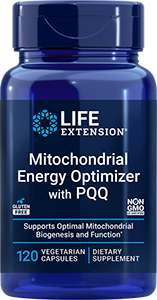 | June 14, 2011 | Broccoli compound goes after cancer cells | | A National Cancer Institute-funded study reported online in the journal Molecular Nutrition & Food Research shows that sulforaphane, a compound that occurs in cruciferous vegetables including broccoli and cauliflower, targets cancer cells by inhibiting a family of enzymes known as histone deacetylases (HDACs) while leaving healthy cells alone. Histone deacetylase inhibitors help turn on tumor suppressor genes that are silenced in cancer cells, restoring normal function. Oregon State University (OSU) researchers had previously found that giving mice a high sulforaphane diet retarded prostate tumor growth. For the current research, Emily Ho and her colleagues at OSU's Linus Pauling Institute studied the effects of sulforaphane in normal, benign hyperplastic, and prostate cancer epithelial cells. They found that the compound induced cell cycle arrest and programmed cell death (apoptosis) in prostate hyperplasia and cancer cells, while not affecting normal cells. “It’s important to demonstrate that sulforaphane is safe if we propose to use it in cancer prevention or therapies,” stated Dr Ho, who is an associate professor in the Oregon State University Department of Nutrition and Exercise Sciences. “Just because a phytochemical or nutrient is found in food doesn’t always mean it's safe, and a lot can also depend on the form or levels consumed. But this does appear to be a phytochemical that can selectively kill cancer cells, and that’s always what you look for in cancer therapies.” “It is well documented that sulforaphane can target cancer cells through multiple chemopreventive mechanisms,” the authors write. “Here we show for the first time that sulforaphane selectively targets benign hyperplasia cells and cancerous prostate cells while leaving the normal prostate cells unaffected.” “These findings regarding the relative safety of sulforaphane to normal tissues have significant clinical relevance as the use of sulforaphane moves towards use in human clinical trials,” they note. | |  |  | | Benign prostatic hyperplasia (BPH) may be recurrent and progressive and (even though it is not prostate cancer) pose a danger to health. When the prostate gland enlarges, for whatever reason, the gland presses on the urethra (the tube that transports urine and semen [which contains sperm] to the outside of the body). Even the smallest increase in the size of the prostate gland tends to compress the urethra. The prostate gland produces a substantial portion of the liquid component of sperm. Also, smooth muscle cells in the prostate gland contribute to the forcible ejaculation of semen. To treat BPH, conventional medicine usually focuses on drugs that inhibit the hormones that control prostate growth or that relaxes the smooth muscles inside the prostate gland. Surgery is also a treatment option. Most men, however, can benefit from a variety of complementary nutritional strategies that offer proven relief for BPH. Evidence indicates that micronutrients such as boron, selenium, alpha-tocopherol, gamma-tocopherol, phytoestrogens, and phytosterols may provide benefits in maintaining prostate health (Thomas JA 1999; Feustel A et al 1987). Additional studies have suggested that intake of omega-3 fatty acids, including docosahexaenoic acid (DHA) and eicosapentaenoic acid (EPA) can inhibit the conversion of testosterone to DHT (Pham H et al 2002). Finally, newer research is showing that vitamin D might be able to arrest prostate growth through unknown mechanisms (Colli E et al 2006). Specific lifestyle changes can reduce the symptoms associated with BPH. If you want to reduce symptoms associated with BPH: - Eat ample amounts of fresh fish, fruits, and vegetables. The high mineral and vitamin content (especially of vitamins E and D) of these foods are essential for general health and metabolism but can also reflect positively on prostate cells.
- Reduce stress, both on and off the job.
- Exercise regularly.
- Keep your weight within normal limits.
- Keep track of the number of times you urinate during the night. See your physician as soon as you notice an increase in frequency.
| Life Extension Magazine® June, 2011 Issue Now Online! 
- On the cover:
- Reports:
- Departments:
- Journal abstracts:
| |  |   | Mitochondria are the energy-producing powerhouses of the cells and are found in highest concentrations in metabolically active organs such as the brain, heart, and skeletal muscles. Mitochondrial Energy Optimizer with Bio-PQQ™ is the most complete mitochondrial support formula on the market. It contains a broad spectrum of ingredients to counteract the primary factors of aging while enhancing the ability of mitochondria to produce energy (ATP). The newest addition, an essential micronutrient known as PQQ has actually been shown to stimulate the production of new mitochondria! This cutting-edge formula provides nutrients to counteract mitochondrial decay (one of the primary factors of aging), nutrients to boost the mitochondrial energy-producing capacity, and now, PQQ. Research has confirmed that PQQ’s cell-signaling effects translate to benefits for the cardiovascular, nervous, reproductive and immune systems. | | | The Life Plan, by Jeffry S. Life, MD  | The Life Plan introduces a healthy aging lifestyle that any man can master, no matter what shape he may be in. It offers: - An action-packed exercise program designed to make working out entertaining as well as improve heart health and increase muscle mass. His program taps into various disciplines—cardio workouts, resistance training, balance and core conditioning, martial arts, and Pilates.
- An easy diet, featuring delicious choices, that any man can follow, along with rules for eating out and sample recipes for the single or married guy.
- A simple nutrient supplement regimen highlighting the top supplements men may need to halt, and even reverse, the aging process.
- A prudent guide to male hormone replacement therapies based on the most up-to-date research.
- Lessons on how to get your doctor to provide the care you deserve.
- How to sidestep America's disease-based approach to medicine and fuel optimal health.
- And much more.
| | | |  | Life Extension Update | What's Hot | Life Extension® Magazine | |














